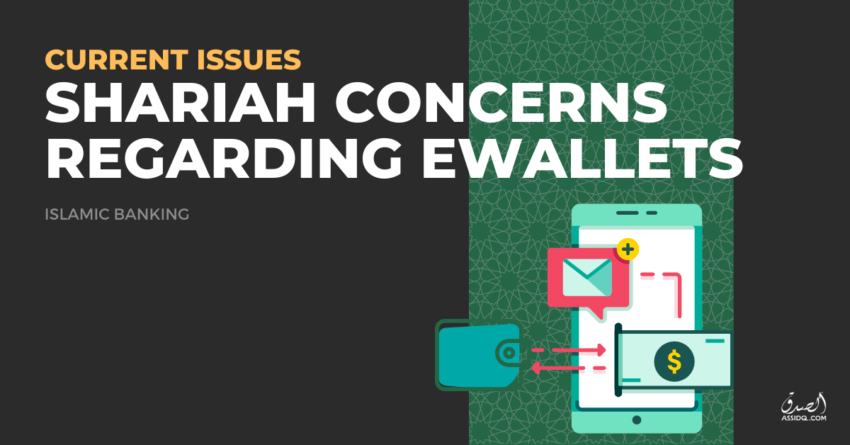Digital disruption is defined as the change that occurs when new digital technologies and business models affect the value proposition of existing goods and services.
The widespread use of mobile devices has accelerated the use and potential of digital disruption across many industries. It has now made its way into the field of engineering, medicine and health, social, economy, finance, and even politics.
One such impact can be seen in the increased use of eWallets. Also known as Digital Wallets or Mobile Wallets, they are a new payment method that allows you to make various payments instantly and effortlessly through an app.
To perform this, you’ll need to link your bank accounts, credit, or debit card to the eWallet app. You can also settle your bills, reload, top-up, or pay for an item or service online or offline within an instant.
The development of eWallet in Malaysia
Until recently, eWallet usage was relatively low among Malaysian consumers despite the conveniences it offers. A 2019 Nielsen survey reported that 50% of Malaysians think eWallet is not secure enough. 34% are worried they might overspend, while 27% think it’s pointless to pay with eWallet as not many merchants accept it.
However, due to the strict movement restrictions caused by Covid-19 pandemic in the first and second quarters of 2020, Malaysia now leads mobile wallet usage in Southeast Asia, according to a MasterCard Impact Study 2020.
In the usage of mobile/digital wallets, Malaysia is leading at 40%, ahead of the Philippines (36%), Thailand (27%) and Singapore (26%). What was once seen as a “dangerous territory”, eWallet is now being embraced and adopted rapidly, either by consumers or merchants.
Predictably, cash usage declined 64% since the beginning of the Covid-19 pandemic, which is a major shift considering the fact that cash was once the most preferred payment method (especially for everyday expenses) among Malaysian consumers.
The pandemic has shown just how important it is for everyone to shift towards a cashless society. This is in line with the country’s push for digital development and becoming a cashless society. To further promote the use of digital payments, the government launched ePENJANA in July 2020.
Under this programme, over 4.5m Malaysians received RM50 eWallet credit, redeemable by using one of the three selected e-wallet service providers, namely Boost, GrabPay and Touch ‘n Go. Other popular local eWallets include Razer Pay, BigPay, Setel, Vcash and MaybankPay.
Despite Malaysia easing the movement restrictions and is now living the ‘new normal’, the preference for online activities that require digital payments, including online shopping and home delivery of food or groceries, would likely remain based on the MasterCard study.
It has been well documented that a cashless society has plenty of benefits at both micro (individual) to a macro (national) level.
While most developed countries are fully embracing the new payment method at a much quicker pace, developing countries including Islamic countries like Malaysia are taking a “slow and steady” approach. In the case of the latter, one of the major reasons revolved around Sharia concerns regarding the use of eWallets.
Permissible to use, or not? The Sharia implication
There are two types of eWallets – bank and non-bank eWallet. As its name implies, the bank eWallet is provided by commercial banks and linked to the customer’s debit or credit account maintained with the bank. Meanwhile, the non-bank eWallet is provided by a non-bank issuer.
For the bank eWallet, we already know how its issuer (the bank) makes money. The eWallet is linked with the user’s respective debit or credit account with the bank. Therefore, when an eWallet is tied with an Islamic bank account, the issue of compliance towards Sharia does not arise. However, when the issuer of the eWallet is a non-bank establishment, then there might be some Sharia concerns that need to be addressed.
Conventional banks survive on rotating clients’ money. In the case of Islamic banks, the process involves Sharia principles such as mudharabah, musharakah, murabahah, tawarruq, ijarah, etc.
The non-bank eWallet issuers, on the other hand, make money from a variety of means. For one, they earn commissions from businesses for transactions using the eWallet. They also generate income from advertising or marketing fees for promoting merchants and businesses.
Seeing that eWallet users keep some upfront value (eMoney) in their eWallet, the issuers also gain deposit interest from this fund deposited by users. Therefore, some concerns arise regarding where the issuers place the deposit and whether money is used following Sharia-compliant practices.
According to Sharia rules, all transactions must be free from elements of riba (interest), gharar (uncertainty), maysir (gambling), and zulm (cruelty or unjust acts). The contracting parties must also know the type of aqad (offer and acceptance) applying to the contract and whether all terms and conditions of the aqad are fulfilled. This will determine the validity of such contracts from the Sharia point of view.
According to Dr Azrul Azhan Iskandar Mirza from Universiti Sains Islam Malaysia (USIM), local eWallet usages are still in the bounds of Sharia principles. He argued that eWallets are not the same as conventional bank deposits due to the fact that they still use banking services for records and payment.
The USIM lecturer also mentioned that eWallet provider companies are not allowed to use the users’ deposit money for any kind of purpose unless the eWallet users themselves opted for the transaction. For example, if Ahmad deposits RM100 into his eWallet but does nothing, the eWallet provider company can’t use the RM100 for any purpose. It should remain untouched in the customer’s account.
In general, an eWallet service is fine as long as it doesn’t have elements that are contrary to sharia principles, and that the goods and services purchased through the eWallet are not haram, like alcohol or digital pornographic content.
Dr. Azrul also highlighted two non-sharia compliant examples that both Muslim consumers and eWallet providers should be aware of:
- Reload bonus promotions
Some eWallet providers offer a bonus for each reload for using their eWallet. For example, a user would load RM100 and he or she would get an additional bonus of RM5. If it is in the form of a loan, then the RM5 bonus is calculated as interest on the loan, and this can be categorised as usury. - Lucky draws
Some eWallet providers would offer ‘lucky draws’ to consumers to encourage them to use their eWallet services. For example, consumers have to pay RM1 from the eWallet to participate in a lucky draw.
If they win, they will receive a prize worth thousands of ringgit. For those who are unsuccessful, they will have their money returned into their eWallets. The RM1 commitment to participate in the lucky draw is considered a form of gambling that is not permissible even if the money is returned.
Bank Negara Malaysia has identified the banks and non-bank companies that are allowed to handle eMoney, where the issue of aqad is also in the bounds of Sharia. There are, however, slight concerns regarding the uncertainty of some promotions offered by the issuers.
Maybank Anytime Anywhere (MAE) and Zapp Islamic are two examples of sharia-compliant eWallet by bank and non-bank. MAE is an eWallet that is managed by Maybank Islamic based on the sharia contract of qard (loan). Zapp Islamic ensures that every transaction on its platform is sharia-compliant.
All in all, Islam has never prevented us from using any form of new technology. Whatever kind of technology is invented, it must be for the good of humanity, fulfils the Sharia principles and should not challenge the power of God. Thus, any form of evolution and innovation should be celebrated in accordance with the times as long as it adheres to the Sharia principles.

